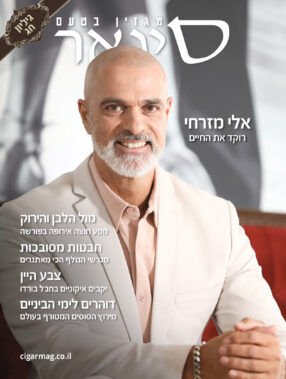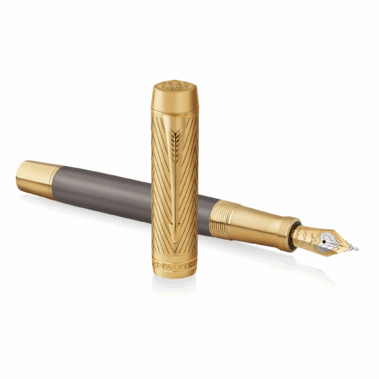When asked who impressed him the most in his meetings with businesspeople, leaders, and influencers, Lior Suchard immediately, without hesitation, mentions the name Jeffrey Katzenberg. Katzenberg was a senior figure at Disney and was eventually fired from there. He then co-founded DreamWorks with David Geffen and Steven Spielberg, which is now the world's largest animation film company, responsible for many box office hits like the "Shrek" series.
"Jeffrey is undoubtedly the most impressive figure to me over the years," Suchard says. "He has a very broad vision of things, is multifaceted, and above all, he is a people person. Every year he hosts a closed conference in Los Angeles, where he connects people from all fields. For me, the networking he has created is exactly the basic understanding of the power of connection. Sometimes one plus one equals three, and that's what I connect with, and that's what I'm implementing now with the combination of my profession as a mentalist and a businessman."

Photographed at the Backstage Hotel Tel Aviv, part of the Atlas Hotels chain.
Suchard is an international star. He appears at leading economic conferences, mingles with world leaders, personally knows the CEOs of the world's leading companies, some of whom are even his personal friends. It is clear that beyond his mental skills, he is a people person. In recent years, he has been translating this natural interface into the business world, which he sees as a direct continuation of his career as a sensory artist.
"It's hard for me to pinpoint a transition point; I'm not sure there is one. It seems to me to be a direct continuation of what I know how to do. After all, I am someone who works with people, who knows how to guide their thoughts in a certain direction and then read them. I realized that there is much in common between the art of the senses and the business world. It mainly focuses on storytelling, how you convey the story and make the other side believe in something. From here, the connection to business is natural for me."
In conversations and interviews, you often use the term "Infotainment" to describe what you do on stage, a combination of information and entertainment. Is this also part of your business toolkit?
"Definitely. When I arrive at a business event, I prepare meticulously. I converse with people, understand the company's business focus, and tailor myself to each event. This applies to a whole range of clients, from high-tech companies dealing with edge technology to low-tech companies. For example, I directed an event for HP, launching a new line of printers. On stage, there was a printer, as if it were part of the decor. I brought several employees of the company on stage and asked them to think of a famous figure, while at the same time, the printer printed their thoughts… This connected the product to my ability. In the process, I also mentioned '100 pages per minute,' which is part of the company's marketing content. At another event, for an Israeli company acquired by Warren Buffett, manufacturing connectors for military products like missiles and aircraft, I made a connection between the company's slogan and the performance. I brought two employees on stage, a man and a woman. I asked the man to tear a piece of paper I gave him, but he couldn't. I asked the woman to guess a number he was thinking of, and she failed. Then I asked her to lay her hand on him, and suddenly she succeeded in guessing the number, and he succeeded in tearing the paper. The audience was amazed. Why? Because I announced on stage: 'We are as strong as what connects us,' which is the company's slogan."

"The Wisdom of the Magpies"
Suchard, 41, resides in Tel Aviv with his wife Tal and their three children. He says he has an agreement with his wife that prohibits him from being abroad for two consecutive weekends. To adhere to this agreement, he flies frequently. He grew up in Haifa, and he served in the Air Defense Corps during his military service. In contrast to his two brothers, who pursued academic studies, he decided to continue with his passion, the world of the senses. "In this respect, I am the black sheep of the family, the only one who did not graduate with honors from the Technion like my two older brothers."
He describes himself as a non-technological type, someone who doesn't write or read lines of code in his imagination, yet he invests in high-tech companies.
"How did you get exposed to the world of high-tech, which you say is distant from you?"
"I owe it to my friend Shay Mishal, a childhood friend of mine, who now manages the Israeli branch of the American investment fund, Merlin Ventures. The fund mainly invests in cyber companies, after merging with the Israeli investment fund, Today Ventures, which was founded by Shay before he joined Merlin. I joined the founding team there and was exposed to the world of high-tech and startups. The first company I invested in was Reposify, which deals with cloud technology security. I joined this company as an investor and advisor, and about a year and a half ago, it was acquired by the cyber giant Crowdstrike. Today, I am happy and proud to join Merlin Ventures itself as a partner in the fund and to work with amazing Israeli companies in the cyber field."
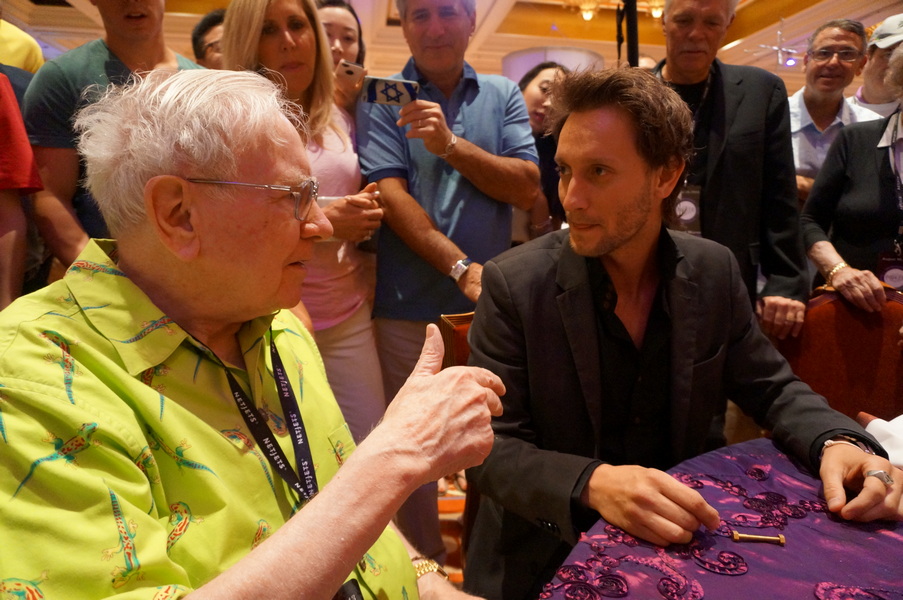
"Beyond that, I invested in a company called MUGO – Music on the Go, which creates an instant community for listening to music and allows masses of listeners to synchronize their listening to a song from various sources. Here, I was already deeply involved in the business activities. The connection with this company was made after the entrepreneur approached me and asked for my help. We examined the technology and the product, and we concluded that there is great potential here, especially on the social level. For example, someone's followers can see that he is currently running and listening to a specific song; they can synchronize with each other, each through a different app, to the exact same part of the song. I connected the company with the music producer and entrepreneur Scooter Braun, whom I met at Kanye West's birthday party. He initially joined as an advisor, and then he connected us with Len Blavatnik, who acquired the company as part of Deezer's business activity, the French competitor of Spotify. In my opinion, this connection of MUGO is exactly my interface between the art of the senses and the business world."
According to "Globes" newspaper, Sushard holds an impressive portfolio of investments. In addition to MUGO, Reposify, and Merlin, he is an investor and advisor in the startup company Anywear for digital clothing design; in Temi Robot, which builds a multi-purpose robot; in Emboline, developing a product for brain protection in medical procedures; and also in Thursday Boot, a New York boot brand.
"I need to understand this investment portfolio of yours. Most of it focuses on high-tech, so how does a boot brand fit into this?"
Suchard, as a sensory artist, was ready for this question. It didn't surprise him, and his explanation was convincing – both logically and commercially. "It all started with a business meeting with friends in New York from the Blue Scorpion Investments fund. They offered me to join a meeting with the people from Thursday Boot, and I agreed. The presentation and the way the owners presented the product were very convincing, and that's where I decided to join this investment."

"What really stood out to me was the triangular connection that was very prominent between the owners, the product, and the customers. I was very impressed by the video they posted on social media, which described the 'making of' the boots. Their marketing seemed interesting, authentic, and convincing. Also, the business idea to produce everything in the United States and the price, less than two hundred dollars, are ideas that were very well received in the pitch (in tech speak: the owner's presentation to investors, A.B.S.). Over the years, I've attended several management meetings, but fundamentally, they managed themselves. Today, the company sells exclusively online for more than a hundred million dollars a year and is poised to be sold for about half a billion dollars."
specify the message
I'm trying to understand what draws your attention in business presentations, as a businessman or as a sensory artist.
"I think, as I mentioned, that storytelling, the way you tell a story, is extremely important in the business world. So with Thursday Boot, it was impressive and powerful. An excellent product can fail because of a bad presentation, and a poor product can succeed because of an excellent presentation. This is where I come into the picture, in the companies where I advise and in some of which I am also a partner. I know how to focus and refine the message in such a way that it penetrates the natural skepticism of investors. That's my interface with the art of the senses. After all, even a person I bring on stage surrounds themselves with a 'firewall' so that I don't intrude into their thoughts. It's the same technique."

Over the years, as you've moved between these two worlds, sensory art and business, have you also been able to identify bad companies?
"Yes, indeed. I once attended an event for a company celebrating its unicorn status (a term in the business world for companies valued at over a billion dollars). The CEO took the stage and enthusiastically announced that this year sales had passed the three-million-dollar mark. Something didn't add up for me. A billion-dollar company celebrating three million in sales? It was clear to me that this was a bubble waiting to burst, and it did. I told myself that it's reasonable to assume that in the early stages of a company, the owner's presentations were excellent and they managed to convince investors."
In addition to your business activities, you are a member of a very exclusive club of "Hublot ambassadors," the Swiss luxury watch brand. You are listed alongside stars like Novak Djokovic, Kylian Mbappé, and Usain Bolt. How did the brand's representatives approach you?
"If you notice, in this whole list, I am the only sensory artist. I had an early acquaintance with the company's CEO through one of the events I hosted. Hublot is actually the 'bad boy' of the watch world. It entered the market as the new kid on the block, kicking and non-conformist, with new designs and advanced materials. It brought a fresh, surprising line to the traditional world of luxury watches. It suited what I represent, something different, surprising, outside the box. Or actually, as I like to say, not outside the box, but a new and surprising box."
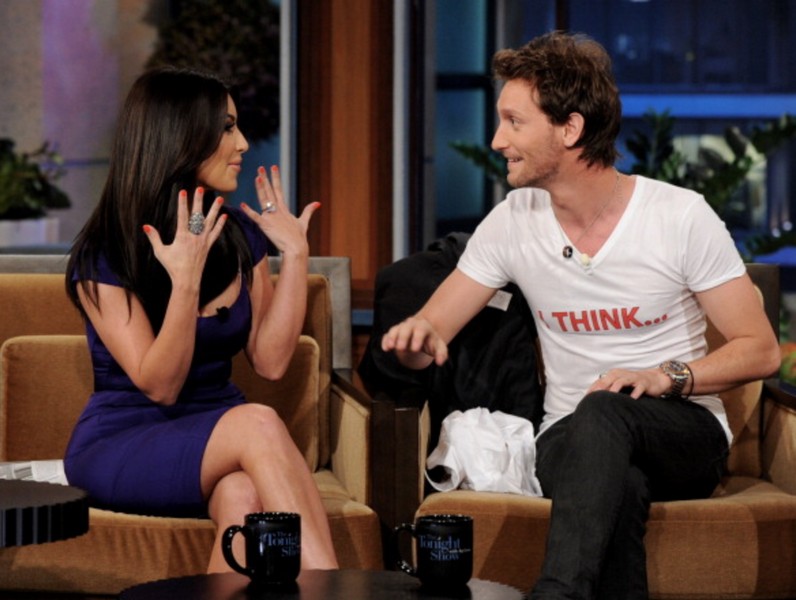
Beside all this, one cannot ignore the current situation. Suchard is deeply involved in Israeli efforts. Nothing prepared him, one of the world's famous sensory artists, for the phone call he received in January. On the line was one of the officers from the Paratroopers Brigade: "Do you remember your performance with us a week ago?" Suchard already understood where this conversation was heading; two of the officers he brought on stage were killed that week by a Hamas missile in the house where they were stationed in Khan Yunis.
"I'm constantly in touch with the units in the IDF. This conversation was tough and poignant. I remembered them exactly, the laughter, the faces," he says. "My wife, who tried to comfort me, said that at least I was there for their last laugh." Since the beginning of the war, Sushard has rescheduled his world travels to be here, between performances for the IDF and visits to wounded soldiers in hospitals.
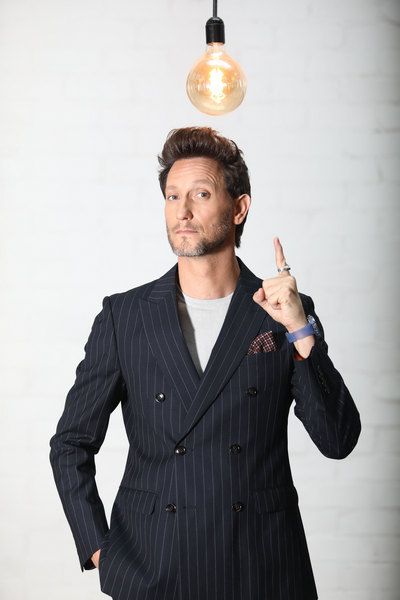
"Maybe right now, a figure like you should be traveling the world and explaining Israel."
"I'm doing that, but in different ways. When the war broke out, I severed all my personal connections with prominent business people around the world to enlist for Israel. For example, I participated in a fundraising event in New York with Lior Raz and Omer Adam. We raised ten million dollars in one evening. We built a special model – every donated dollar goes directly to a family's needs. I keep an Excel spreadsheet, which I call the 'pain and sorrow' spreadsheet. In this spreadsheet, I have hundreds of names of Gaza envelope victims – who was injured, who lost a parent, who lost both parents, siblings, and so on. Next to each name, I note their needs: housing, education, economy, rehabilitation, and anything else that may be needed. I connect the donors directly to them. There's a trustworthy person who receives the money and ensures it goes directly to those in need."
"Later on, I also used my prominent presence on social media to recruit influencers for the benefit of Israel. It cost me a drop in followers, but I'm completely fine with that. I presented the truth."



